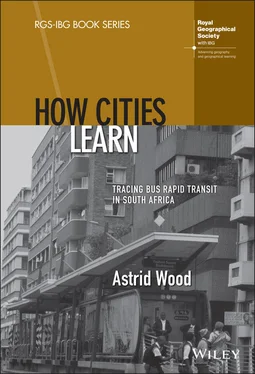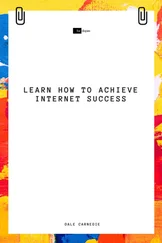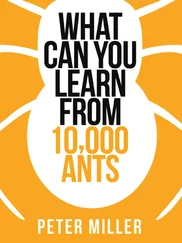Astrid Wood - How Cities Learn
Здесь есть возможность читать онлайн «Astrid Wood - How Cities Learn» — ознакомительный отрывок электронной книги совершенно бесплатно, а после прочтения отрывка купить полную версию. В некоторых случаях можно слушать аудио, скачать через торрент в формате fb2 и присутствует краткое содержание. Жанр: unrecognised, на английском языке. Описание произведения, (предисловие) а так же отзывы посетителей доступны на портале библиотеки ЛибКат.
- Название:How Cities Learn
- Автор:
- Жанр:
- Год:неизвестен
- ISBN:нет данных
- Рейтинг книги:4 / 5. Голосов: 1
-
Избранное:Добавить в избранное
- Отзывы:
-
Ваша оценка:
- 80
- 1
- 2
- 3
- 4
- 5
How Cities Learn: краткое содержание, описание и аннотация
Предлагаем к чтению аннотацию, описание, краткое содержание или предисловие (зависит от того, что написал сам автор книги «How Cities Learn»). Если вы не нашли необходимую информацию о книге — напишите в комментариях, мы постараемся отыскать её.
How Cities Learn — читать онлайн ознакомительный отрывок
Ниже представлен текст книги, разбитый по страницам. Система сохранения места последней прочитанной страницы, позволяет с удобством читать онлайн бесплатно книгу «How Cities Learn», без необходимости каждый раз заново искать на чём Вы остановились. Поставьте закладку, и сможете в любой момент перейти на страницу, на которой закончили чтение.
Интервал:
Закладка:
Also of interest is a study by Ward (2011) that offers insight into the actors and their methods for employing policy models in Manchester, UK. Their research focuses on Manchester city officials pursuing knowledge of Olympic and Commonwealth Games projects, and specifically the techniques in which they learned from previous host cities to exploit these opportunities to engage in broader economic development strategies. Officials visited cities whose best practice in hosting mega events had been broadcast around the world, such as Los Angeles and Lillehammer; their meetings with officials as well as site visits to sports-related infrastructure and associated regeneration sites were used to execute the redevelopment of east Manchester. In this case, the city’s failed bid to host a mega-event did not deter them from implementing the learning. Such points offer an opportunity to consider the manner in which local politics is used to convince (or subvert) particular actions and determinations taking place elsewhere as a part of the learning process. It also provides evidence of the importance of previous policy failure in ongoing decisions.
Such considerations for global and local policy actors, raises questions around who holds power in the city and who determines urban policy? Furthermore, how do policy mobilizers exert normative power albeit spatially and politically distantiated? Moreover, if international players are acting as decision-makers, then how do local elected officials such as mayors wield power differently than civil servants? Finally, how does the shifting role between public and private enterprise enable those outside of government to exercise power? A Foucauldian understanding of power suggests that it is something which circulates and “not only do individuals circulate between its threads; they are always in a position of simultaneously undergoing and exercising power” (1980: 98). Power thus is an “entangled bundle of exchanges dispersed ‘everywhere’ through society” (Sharp et al. 2000: 20). It is not composed of a fixed group acting in unison, but rather it is diffused through a multitude of places and spaces through the circulation of knowledge. Power is not limited or enhanced by geographic distance because actors can reach into other localities, influence decisions without political power and even keep ideas out of foreign localities (Allen 2003). The arguments presented in Chapter 4do not presume that power is situated within institutions as Castells’ (1996) “space of flows”, or Lefebvre’s (1991) description of the systematic reorganization of institutional geographies, but rather follows Foucault’s suggestion that power is not a “zero-sum game”, an ensemble of actions that overlap and support one another to achieve mutually beneficial gains (Dreyfus and Rabinow 1982).
Chapter 4 explores the varied and sometimes unexpected decisions by policy actors as expressions of power relations, as well as the relationships formed prior to and because of the circulation process, which facilitates the adoption of ideas from elsewhere. This includes some reflection on actor-network theory and an exploration of both human and nonhuman actors within policy mobilities. In Chapter 4, I draw on Deleuzian ideas of assemblages to theorize and explain how networks form and sustain these circulations as part of network formation and assembly (Deleuze and Guattari 1972, 2004; Foucault 2003; Rabinow 1984). This theorization places policy travels and transfers alongside a host of urban happenings – capitalism, political contestation, as well as learning and mobility (Farias and Bender 2010; McFarlane 2011b). Larner and Laurie (2010) show how, within these global assemblages, experts easily travel between places mobilizing transnational flows (see also Larner 2002). Both McFarlane’s (2009) study of transnational movements and Robins’ (2008) research into social movements use this approach to demonstrate how networks exchange experiences, ideas and resources across the globe. McFarlane (2011a) interprets the movement of knowledge across spatiotemporal circumstances through the notion of assemblage, in which the actors and their knowledge and materials form an agglomeration. It is important to realize though that the assemblage is temporary – it constantly adjusts and alters over time (Ong and Collier 2005).
My exploration of both the global and local individuals involved in policy mobilities in Chapter 4enriches these arguments, with empirical examples of international advocates and local implementers adding a focus on the intermediaries who link these two sets of actors, through exploration of their interactions. This focus on a wide variety of actors is particularly critical in understanding how and why circulated ideas are adopted locally. The information and experiences presented by these policy mobilizers are validated by virtue of their presence in the locality. That is, they do not simply land elsewhere; intermediaries, elected officials and civil servants in need of their expertise usually invite them or choose to provide an audience. The policy mobilizers usually present a vast field of possibilities but subtly direct their hosts towards a preordained solution. The local actors also participate in the game – they listen to the presentations, ask questions and at times are critical of the talk, before ultimately arriving at the same conclusions as the policy mobilizers. In some instances, the local actors rely on these international voices to validate previously planned urban investments. Chapter 4will demonstrate the way in which policy mobilizers and local actors maintain a symbiotic relationship, both exploiting the other’s positionality to adopt circulated policy.
Tracing through Cities
The relationships between cities play a central role in this study. A range of economic and political characteristics bring certain cities into conversation with one another, while pushing others further apart. The learning process often requires localities to work closely together, sharing private technical and political information and, in many instances, spending extended periods collaborating. Peck and Theodore (2001, 2010b ), for example, present instances of the transfer of poverty alleviation policies between the UK and the US during the Thatcher/Reagan and Blair/Clinton eras, arguing that the friendship between the political leaders predisposed the governments to collaborate. The manner in which commonalities in government and policymaking contexts enable policies to transfer across socio-political boundaries is also evident in studies of the transnationalization of the business improvement district, where geographical proximity between the UK and Europe was disregarded in favour of exchange of political associations (Ward 2007a, 2011). There have also been studies of similar accounts of ideological exchanges between the former Soviet countries (Cook et al. 2014b; Offe 1996), as well as between European cities after the Second World War (Clarke 2010; Vion 2002). In such instances of “municipal diplomacy” (Saunier 2002: 526), cities are not merely importers or exporters of policy but part of the global system of power relations in which policy circulates.
Cities at times also search for new ideas beyond their most obvious comparators, perhaps assuming that there is more to appreciate from engaging with difference. Mahon and Macdonald (2010) present a case study comparing poverty alleviation programs in Toronto and Mexico City. In this instance, the two cities exchanged ideas particularly because their different approaches offered innovation to each city. However, in exchanging local solutions, Toronto and Mexico City strengthened their relationship, thereby demonstrating that policy exchange is instrumental in forming relationships between localities. In McCann’s (2011b) study of Bing Thom, a Vancouver architect-consultant hired by Fort Worth, Texas to “Vancouverize” the city, he underscores the ability of a policy mobilizer to influence development across localities despite considerable differences between the places. These policy mobilities studies provide a foundation for my research of the manner in which cultural, economic and political relations between and within cities were used by South African policymakers to advance (or subvert) particular actions and decisions regarding BRT.
Читать дальшеИнтервал:
Закладка:
Похожие книги на «How Cities Learn»
Представляем Вашему вниманию похожие книги на «How Cities Learn» списком для выбора. Мы отобрали схожую по названию и смыслу литературу в надежде предоставить читателям больше вариантов отыскать новые, интересные, ещё непрочитанные произведения.
Обсуждение, отзывы о книге «How Cities Learn» и просто собственные мнения читателей. Оставьте ваши комментарии, напишите, что Вы думаете о произведении, его смысле или главных героях. Укажите что конкретно понравилось, а что нет, и почему Вы так считаете.












